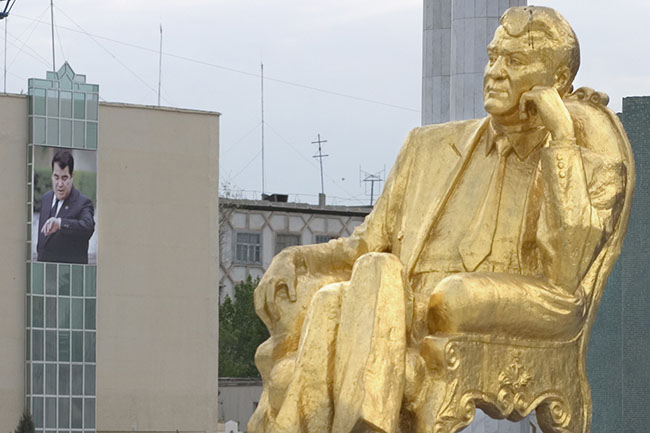
The Clash asked. Now I am too: Should I stay or should I go?
Celebrity liberals always threaten to head for the exits if a presidential election doesn’t go their way. Then they renege.
This year is different: some Americans really are leaving.
An early indicator of Trump-inspired flight came on Election Night, when Canada’s immigration website crashed due to visitors from the lower 48. Whether these scaredy-cats are motivated by Trump’s come-from-behind victory — so this is America? — or by the grim reality of Trump’s cabinet picks and executive orders — so he’s keeping his fascist campaign promises? — this is the first time I’ve seen people actually up and go in response to an election.
“Trumping out” is far too tiny of a phenomenon to qualify as an official Thing. By mid-December, only 28 Americans had applied for asylum. But my instincts tell me that’s about to change. And my instincts are pretty sharp: counting yard signs in my swing state/swing county hometown of Dayton, Ohio gave me an early indication that Trump had a strong chance of winning.
If you’ve got some money, college degrees and speak a second language (ahem, French), it’s pretty easy to get into Canada, which has served as our go-to exile since the Vietnam draft dodgers. With help from a lawyer, a friend of mine who said he didn’t want his children to grow up in a fascist country scored residency documents for himself, his wife and kids in just a few months. Canadian colleges and universities are reporting a surge in U.S. applicants — many of whom would likely stay up there after graduation.
I think most people who are eyeing the door are like me, in wait-and-see mode.
Let’s be clear: this isn’t about voting with our feet. If I moved out of the country every time I didn’t like the election results, I’d be gone after every single election, and that includes the local ones. I hate both parties; I hate the entire system. This is about self-preservation: what if some Trump nut takes it upon himself to shoot me over a cartoon? It wouldn’t be unprecedented.
It’s also about practicality. Fleeing Trumpistan would be much easier for me than for most people. I have dual French/EU citizenship through my mom, a status I have maintained in the belief that economies and societies can collapse quickly so it’s good to have an exit strategy. My French is passable. Thanks to the Internet, my career is portable. I could draw cartoons and write columns and publish books from anywhere on earth.
I talk almost every day with a colleague, a conservative journalist, about how we will know it’s time to leave the United States. Not to express disapproval – honestly, who would care? – but to save our skins.
You know that Martin Niemöller “first they came for the…” quote? Political cartoonists know that here, in the U.S. under Trump in 2017, we could easily be the first. So we’re watching closely.
When your government turns psycho, you don’t want to wait until it’s too late to get out. When you ask Jewish Americans what year their family fled Europe to come to the United States, it’s striking how most left before, say, 1936. The Holocaust didn’t technically begin until 1941, but earlier departures were easier — and impossible after World War II began in 1939. On the other hand, moving is expensive. And I’m American. I don’t want to leave. I like it here. Why jump the gun?
I’ve been reading Volker Ullrich’s superb biography Hitler: Ascent, 1889-1939. Trumpism isn’t Nazism but 20th century fascism provides some useful tips for America’s descent into whatever the hell this psychotic real estate honcho has in store for us.
As Ullrich reminds us, the machinery of state repression moved quickly after Hitler’s 1933 seizure of power. Censorship, then arrests of left-wing politicians were an early canary in the coalmine. This week we watched Trump’s Republicans silence the unfailingly polite Elizabeth Warren on the floor of the U.S. senate. The president himself personally joke-threatened to “destroy” the career of a Texas state senator as a favor to police, because the lawmaker wants to reform civil asset forfeiture (when cops steal your property and never give it back, even when you’re found not guilty of a crime).
Soon after becoming chancellor, the Nazis began insinuating their one-party state into commerce, punishing businesses they deemed insufficiently cooperative. Also this week, Trump went after Nordstrom’s in revenge for the department store chain’s decision to stop carrying his daughter Ivanka’s clothing line. Trump Administration chief propagandist Sean Spicer defended the president’s bizarre comments, declaring Nordstrom’s decision “an attack on his daughter.”
Should I stay or should I go?
Like porn, we’ll know The Moment Everything Changed when we see it.
The arrest of a politician would be such a moment. As would a “temporary” suspension of civil rights, even/especially if it followed the inevitable next terrorist attack.
I don’t have much use for the reliably impotent corporate news media — indeed, Trump’s win is largely their fault — but as a look-out-this-is-getting-really-real moment, Trump’s relentless beating up on the press makes me incredibly nervous. What will this guy do when the new Left gears up with big-ass protests later this year? Isolated from the rallies from whence he drew his strength, Boy Trump in the Beltway Bubble spells trouble; look for The Donald to wallow in paranoia so deep and dark that even Richard Nixon wouldn’t be able to relate. There he’ll be, surrounded by Steve Bannon and his other pet fascists — no one talking stay calm and carry on, everyone around him egging him on as he lashes out.
If you’re not scared, you’re not paying attention. Then again, maybe it’s not as necessary for you to watch the signs as it is for me.
(Ted Rall is author of “Trump: A Graphic Biography,” an examination of the life of the Republican presidential nominee in comics form. You can support Ted’s hard-hitting political cartoons and columns and see his work first by sponsoring his work on Patreon.)


 To the French, it felt like the end of the world. 1940: defeated in six weeks, surrender, subjugation, overrun by German soldiers whose power of life or death were absolute and absolutely capricious. Fascism triumphant; organized resistance as yet unimaginable.
To the French, it felt like the end of the world. 1940: defeated in six weeks, surrender, subjugation, overrun by German soldiers whose power of life or death were absolute and absolutely capricious. Fascism triumphant; organized resistance as yet unimaginable.

 “There’s no savior out there.” That’s a line from “
“There’s no savior out there.” That’s a line from “

